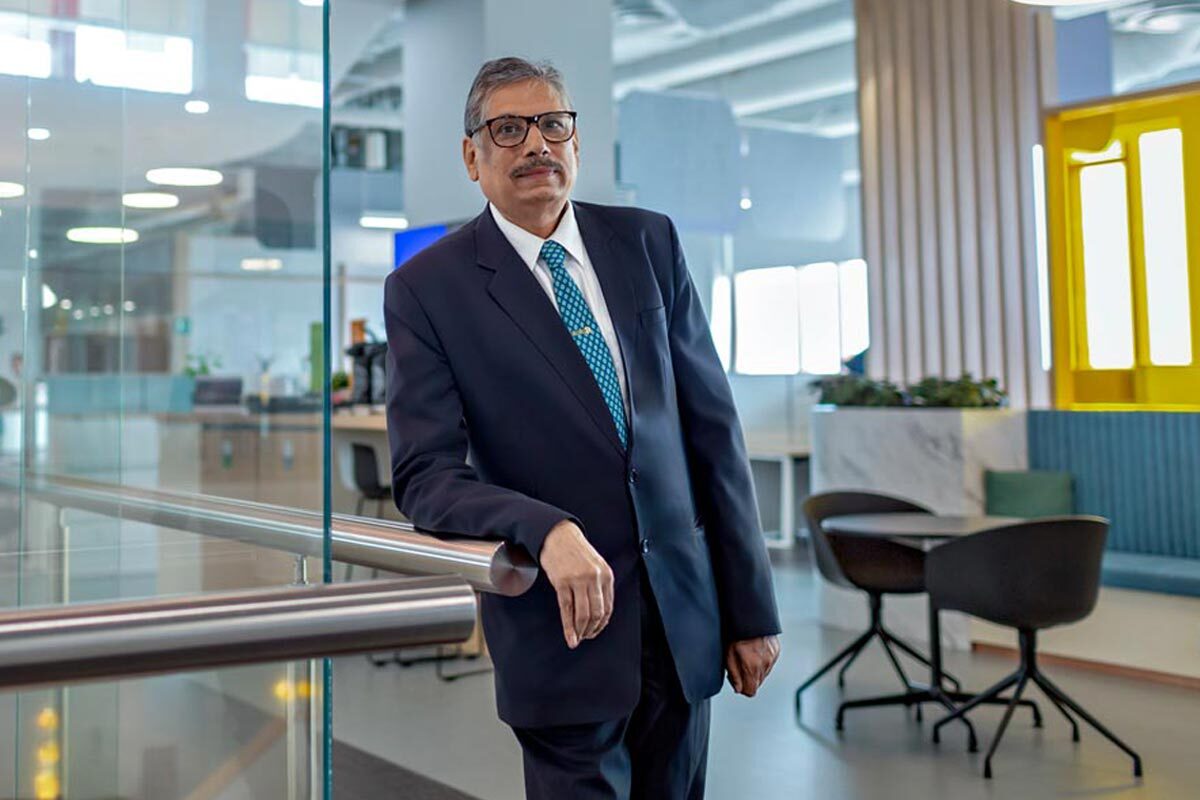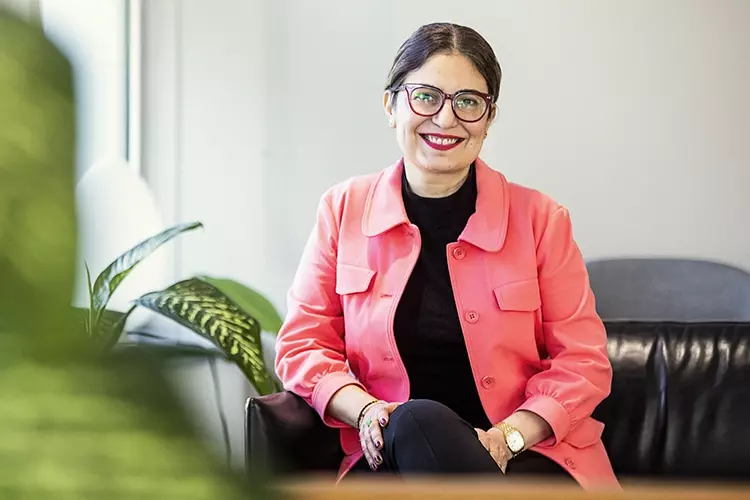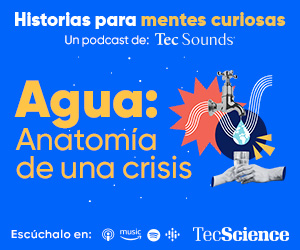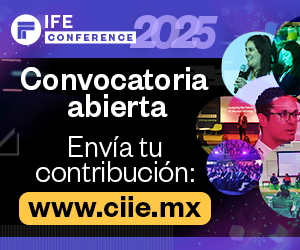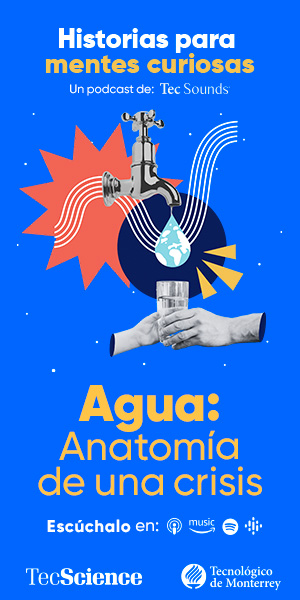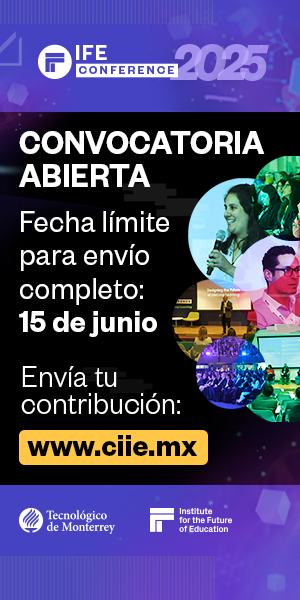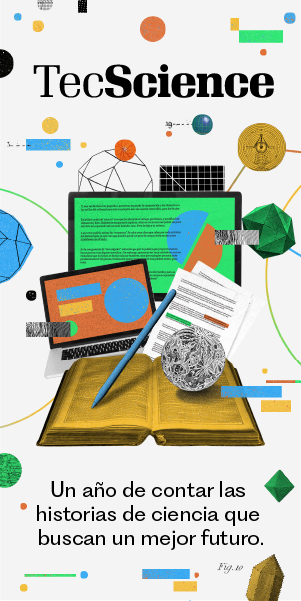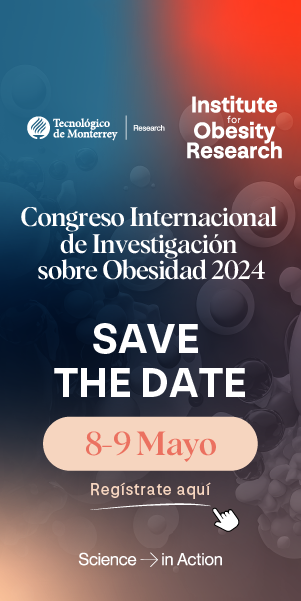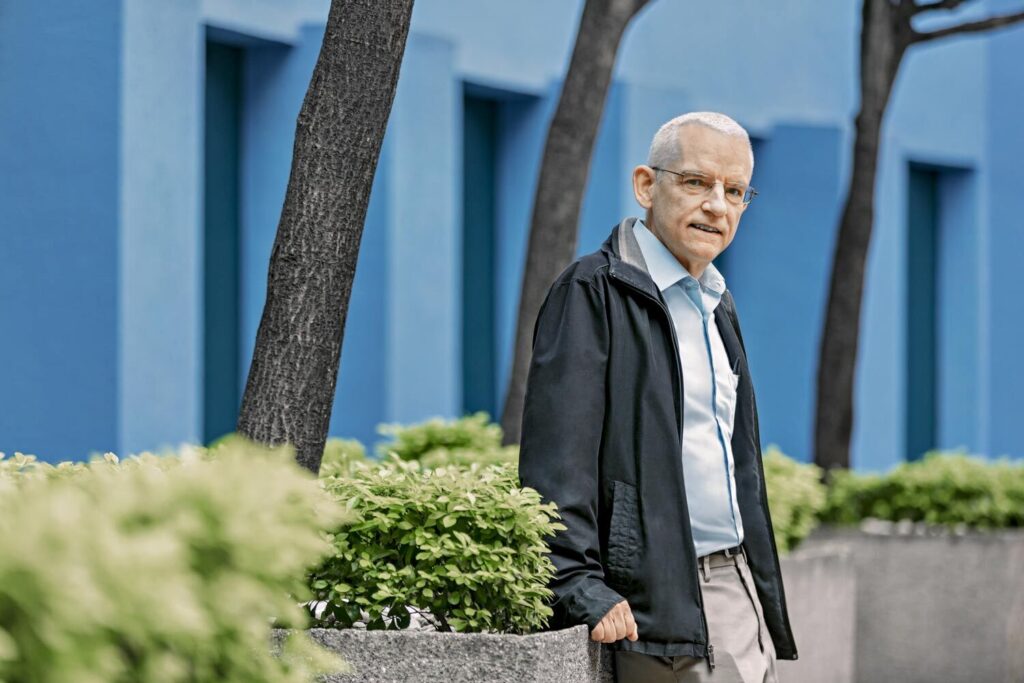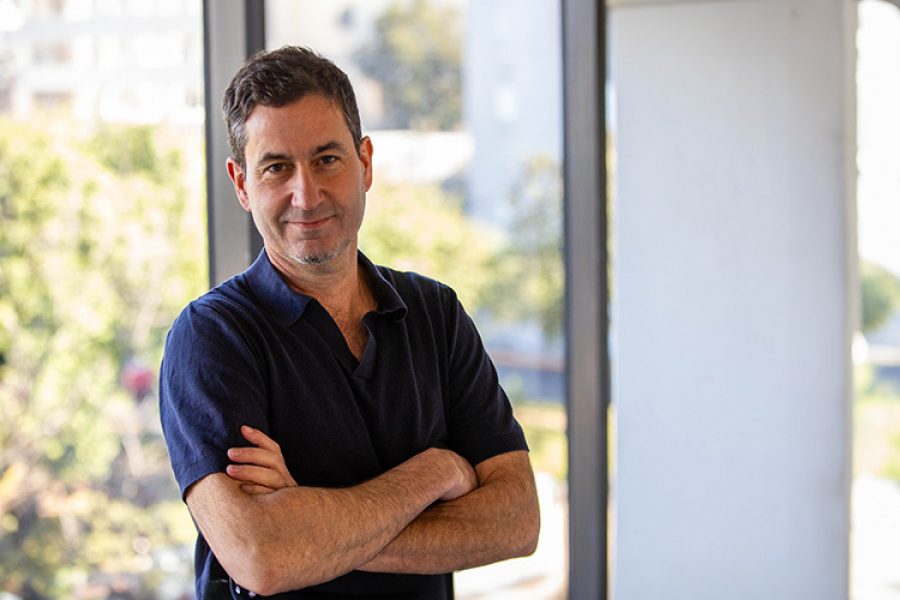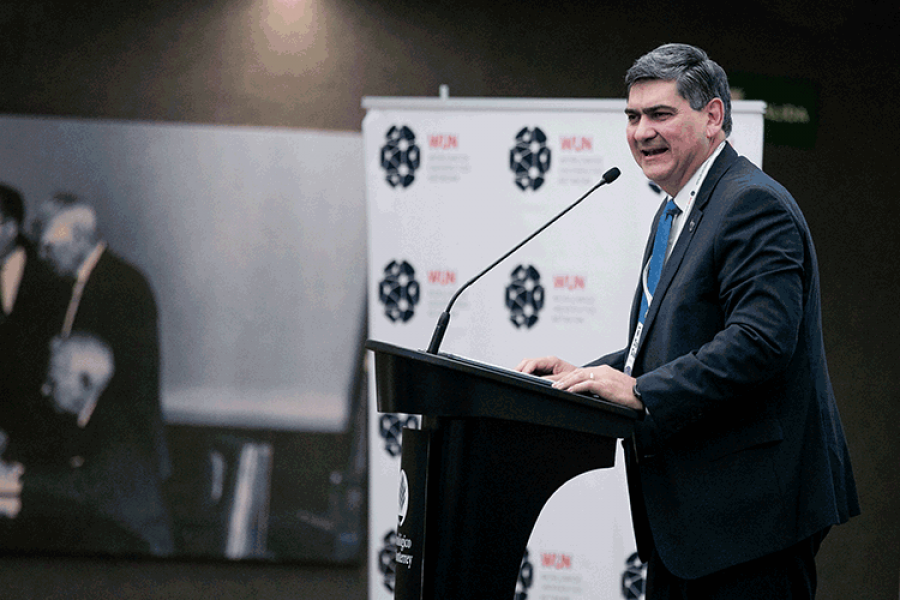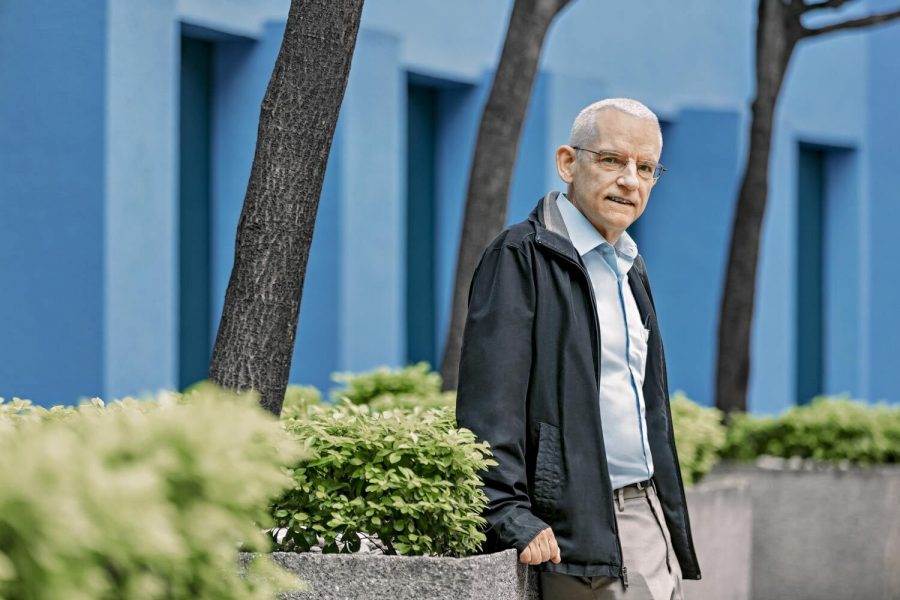Rajagopal enters the room with several sheets in his hands. I realize they contain some key points that he wants to talk to me about. “What if I forget?” He tells me in a friendly voice that breaks his apparent seriousness.
His attire, with a gray suit and vest, and the fact that he comes prepared for the interview, reflects the seriousness with which he takes his work and his desire to share it with the world.
Born in India, Rajagopal spent the early part of his life in his country; therefore, he learned about marketing, entrepreneurship and innovation, immersed in a culture very different from the one we know in the Western world.
It was in the rural areas of his country where he began to do research. Exploring the buying and selling behavior in unorganized markets gave him new insights.
Over the years, he has developed concepts and models that can be applied by different companies or businesses to modernize and make their strategies more efficient. For him, marketing is a way to improve the world by stimulating social and economic growth in every corner.
Nowadays, he lives part of the year in Mexico City. He is a research professor at the Department of Marketing and Business Intelligence at EGADE Business School at Tec de Monterrey and the Metropolitan College at Boston University. “Over the years I have been mixing the knowledge I have acquired in the East and the West,” he says.
Marketing: His Passion
He tells me that apart from his grandchildren, who make him laugh a lot, he considers himself a serious person and focused on his work. The 71 books he has published throughout his career – as author or co-author – confirm this. When we start talking, his eyes shine with kindness, excitement, and a little nervousness. The camera can be intimidating.
Why do you think marketing is important?
Because it can help us create a better world; it is one of the main transactional doors for development. It stimulates socioeconomic growth, entrepreneurship, creativity, innovation and technology
One of his greatest contributions has been to help the evolution of marketing, by developing concepts such as collective intelligence, or theoretical models such as the 11-element marketing mix.
His research focuses on the consumers, their needs and tastes, to help companies create truly useful products – that also sell well. These models have been adopted by companies of all sizes. “It is very satisfying to see my ideas put into practice,” he says excitedly; gis smile reflects his passion for his work and contributing to development.
Earlier this year he received the Pravasi Bharatiya Samman Award (PBSA) for his contribution to education, the highest honor conferred by the Presidency of India on its citizens living abroad. Among his other distinctions is being a Life Fellow of the Royal Society for Encouragement of Arts, Manufacture and Commerce of London.
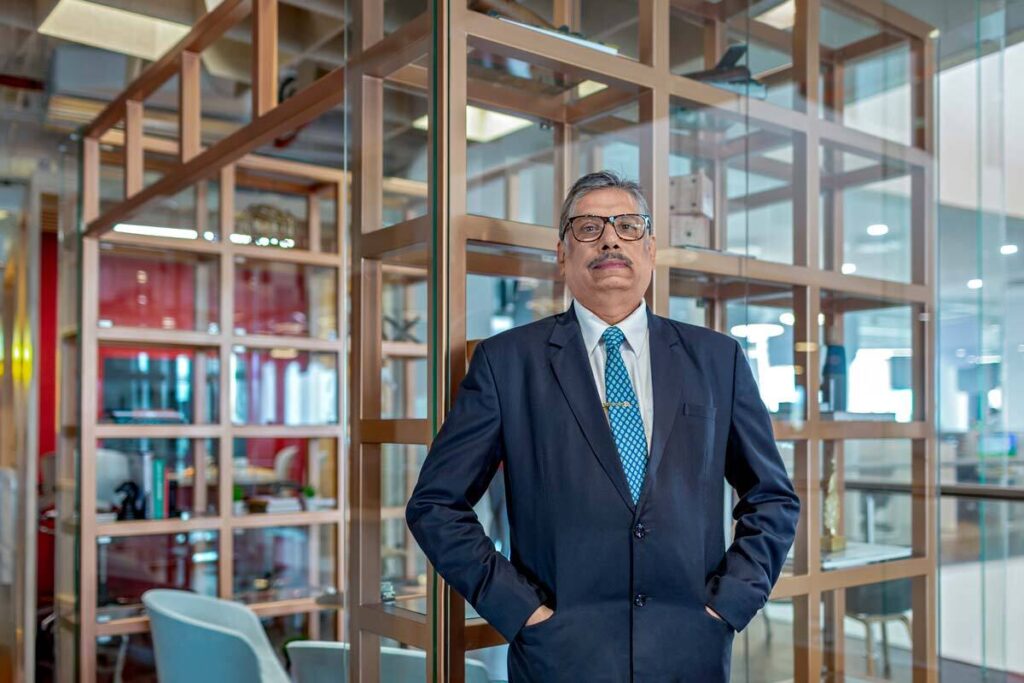
The Science of Marketing
How can scientific research help improve marketing?
Conventional marketing practices cannot remain competitive unless they are transformed with scientific research, understanding the causes and effects of interrelated factors. It is about exploring, analyzing, modeling and implementing.
Most producers or service providers believe that marketing is very simple, that people will buy any product they make, but it is not that easy. Everything has become more complex as competition has increased and technology has advanced.
In my research I took the common marketing mix, which consists of four concepts: product, price, place and promotion, and added new elements, such as packaging, pacing, performance, people, psychodynamics, posture and proliferation. Posture is a very important factor because brands must think about what makes their product special and create differentiators that improve their reach.
What is collective intelligence and how can it be used in marketing strategies?
It is a set of social information that enriches knowledge about the consumer and provides a basis for understanding problems, needs and possible solutions.
Social media has strongly motivated people to make their voice public, significantly increasing knowledge, skills, and practices within the marketing community.
Why is it important to consider crowds in marketing strategies?
Many companies rely on crowdsourcing ideas to develop new products, co-create brands, and manage open innovations. The behavior of crowds is essential to create conscious consumption and impart knowledge about sustainability.
Let’s take the example of IKEA, they observe their customers, asks them what they want and then offers its products, which are very successful. Crowd behavior leads to co-creation, which in turn leads to innovation and attraction.
But we must not forget that consumer behavior is dynamic; changes frequently. What is today may not be tomorrow, which is why they must continually transform their products.

From India to Mexico
22 years ago, Rajagopal was invited to give a seminar on his research at the Mexico City Campus of Tec de Monterrey, while he was a professor at the College of India. He tells me that he was delighted with the professors and the facilities at Tec.
His experience was so positive that, shortly after, he returned semi-permanently as a research professor and, in 2007, he joined the EGADE Business School. “It has been a very good experience interacting with my colleagues,” he says.
The archaeological sites and chilaquiles are some of the things he enjoys most about Mexico, plus the fact that the family is in the center of the country’s society reminds him of India. Mexico appreciates him in return: for his academic contributions, CONACYT has granted him a level III in the National System of Researchers (SNI).
What do you like most about being a research professor at Tec de Monterrey?
The possibility of balancing teaching and research and being able to use my findings in my graduate classes. For me, teaching is two-way learning. Most of our students are working managers, so they have their own experience and perspectives, there is a very good mix of knowledge.
I enjoy guiding my students in field projects and seeing that what we discuss in class works in reality and that they are establishing their own companies and startups.
Growing up in India, how has your worldview influenced your work and how do you think it differs from the Western perspective?
Being one of the big emerging markets, India has given me the opportunity to frame my research on a broader canvas. My learnings, experiences and ideas have helped me propose new models in Latin America.
With the Embassy of India we have developed an India-Mexico Research consortium and every month we organize webinars where we invite a Mexican scientist and an Indian scientist to discuss various topics such as entrepreneurship, sustainability, and biotechnology, and I moderate them. This is another example of how he attempted to combine the knowledge of the East and the West.
A good while has passed since the interview began, Rajagopal apologizes for having gone on so long in his answers and tells me that he is so passionate about what he does that when asked, he lets himself go. It’s actually a pleasure to hear him speak.

